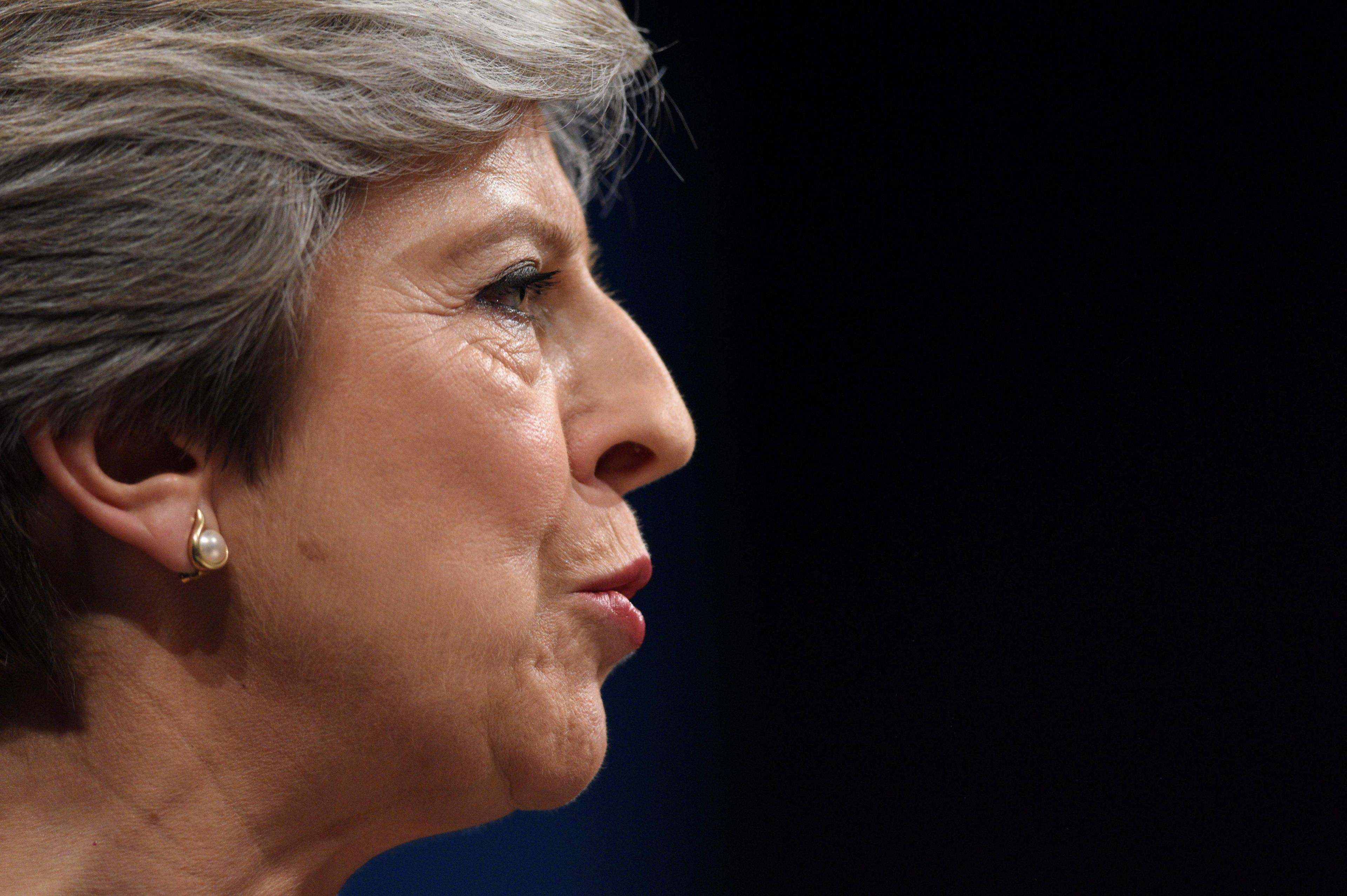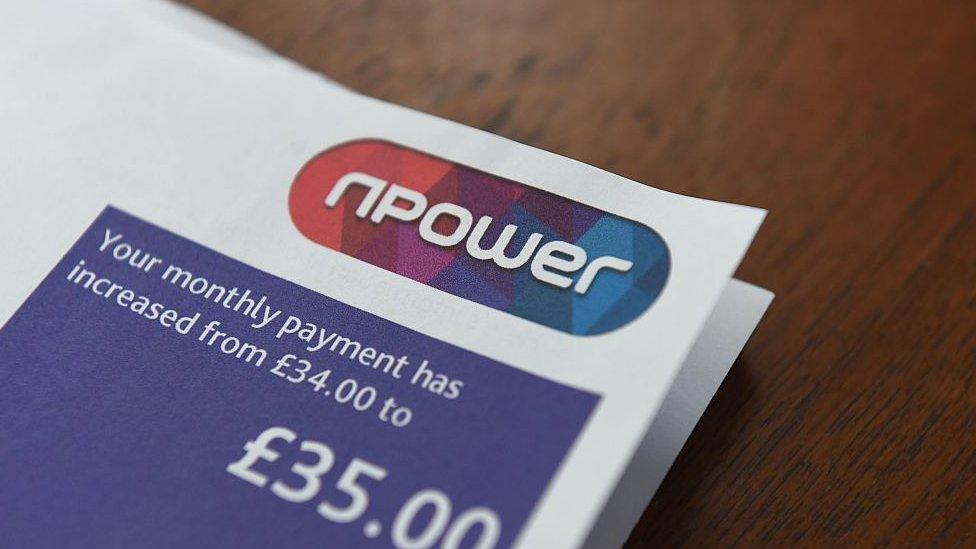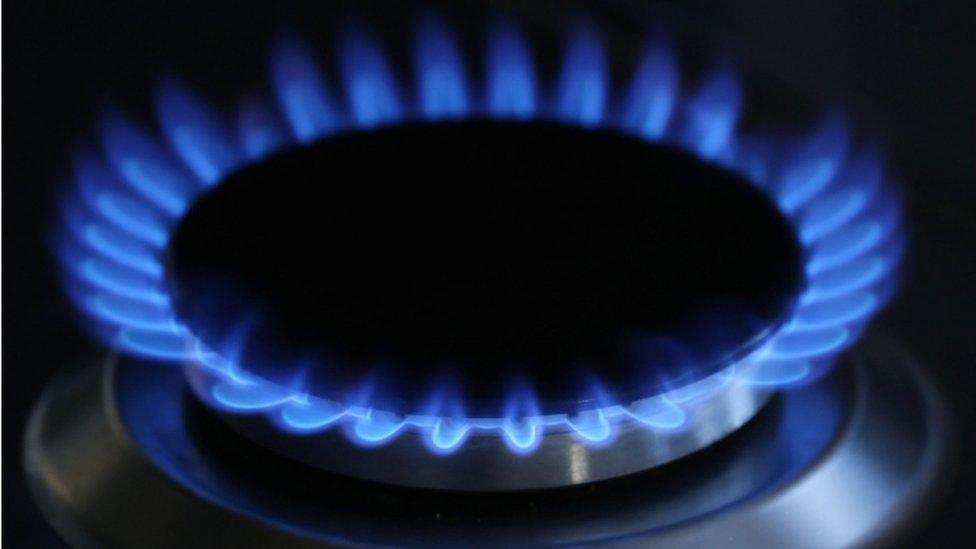Theresa May revives plan to cap energy prices
- Published
- comments

Theresa May has promised to revive a plan to cap energy prices for an extra 12 million consumers, saving them an average of £100 a year.
The idea was promised in the Conservative's election manifesto, but there was no mention of it in June's Queen's Speech.
The full details will be published in a draft Parliamentary bill next week.
However, many in the industry were critical of her announcement. The CBI said it was "not the best answer".
The Labour Party said the plan did not go far enough and it was unclear "when and how" action would be taken or whether it would be left to the regulator Ofgem.
The cap is likely to apply to everyone who is currently on a standard variable tariff (SVT). Such rates have been criticised as being more expensive than fixed-term contracts.
Mrs May told the Tory party conference in Manchester that Britain's energy market was broken and needed to be fixed.
"The energy market punishes loyalty with higher prices, and the most loyal customers are often those with lower incomes, the elderly, people with lower qualifications and people who rent their homes," she said.
When the regulator, Ofgem, was asked to look into the idea of a price cap, it suggested expanding the scheme that already limits prices for four million consumers on pre-payment meters.
Ofgem wanted to extend that cap, but only to other customers deemed to be vulnerable.
The Conservatives want to go much further by bringing all 12 million people on SVTs into the scope of the cap.

The Prime Minister said that high energy prices hurt those on low incomes the most
The safeguard tariff, as it is known, would be set - and regularly reviewed -by Ofgem.
It would also be temporary.
Ofgem said its top priority was to protect consumers and it would co-operate with the government.
"We share the government's concern that the market is not working for all consumers, especially the vulnerable, and will work with the government on their plans announced today to better protect consumers on poor value deals," an Ofgem spokesperson said.
Government sources suggested the process could be speeded up with Ofgem's co-operation, as that might remove the requirement for legislation.
Going the Parliamentary route is likely to mean that any such cap is unlikely to be in force before next winter.

Price cap: How it will work
It will affect 12 million consumers on SVTs
On average, it should save those consumers £100 a year
It will be set, and reviewed regularly, by Ofgem
It will be temporary
It may not come into effect until the winter of 2018-19

'Not the answer'
The CBI was highly critical of the government's move.
"Today's announcement is an example of state intervention that misses the mark," said Carolyn Fairbairn, the CBI's director general.
"Market-wide price caps are not the best answer." However, she welcomed the possibility of standard variable tariffs being phased out.
Others in the energy industry were also critical, saying that a price cap risked stifling competition.
"Over three million consumers have switched already this year and the number of standard tariffs have fallen by almost a million in the last six months," said Lawrence Slade, Energy UK chief executive.
"It is important that we do not risk halting this growth of competition and engagement in the market."

However, smaller energy suppliers welcomed the news.
"We support Theresa May's commitment to tackle the broken energy market and the exploitation by the Big Six, which disproportionately affects vulnerable customers," said Ed Kamm, First Utility's chief commercial officer.
"The majority of consumers pay far too much for energy and many have been doing so for decades. Time has finally been called on the Big Six's behaviour."
Citizens Advice welcomed the news, but said that some vulnerable consumers might need help before the bill could be passed into law.
One energy supplier - E.On - has already said that it will phase out standard variable tariffs from next year.
Mrs May's announcement put the skids under energy company shares prices, with British Gas-owner Centrica closing down more than 6%. Rival SSE closed down more than 3.2%.
- Published29 September 2017

- Published3 July 2017
